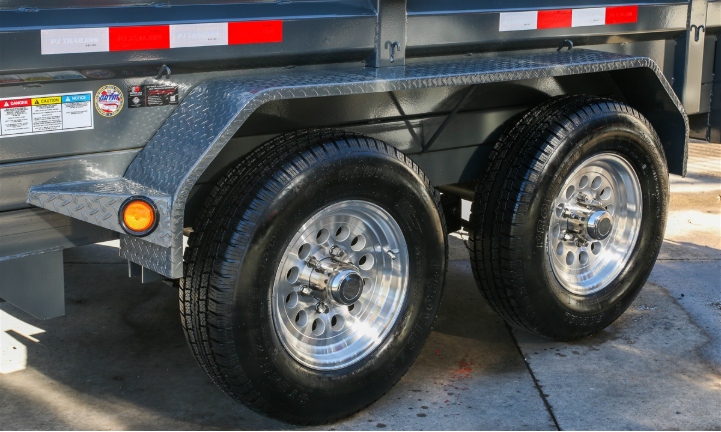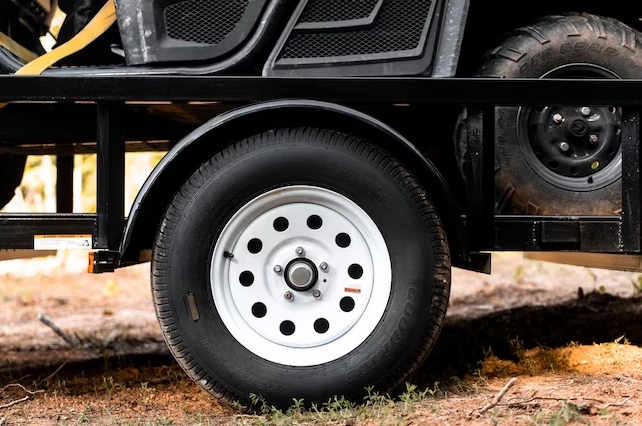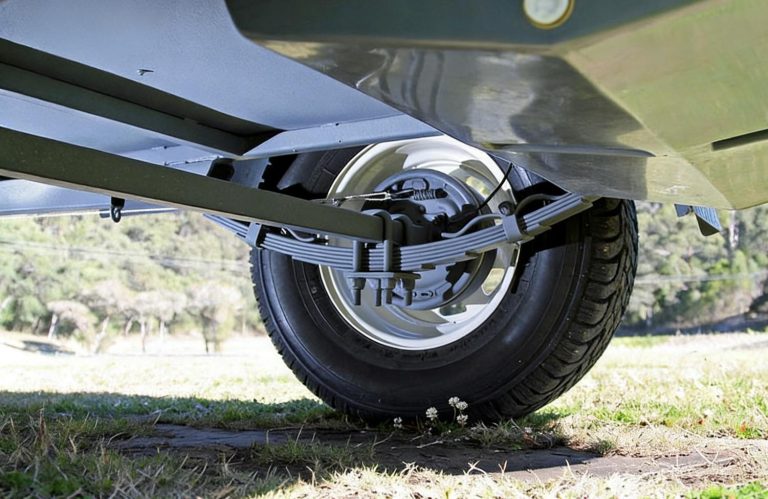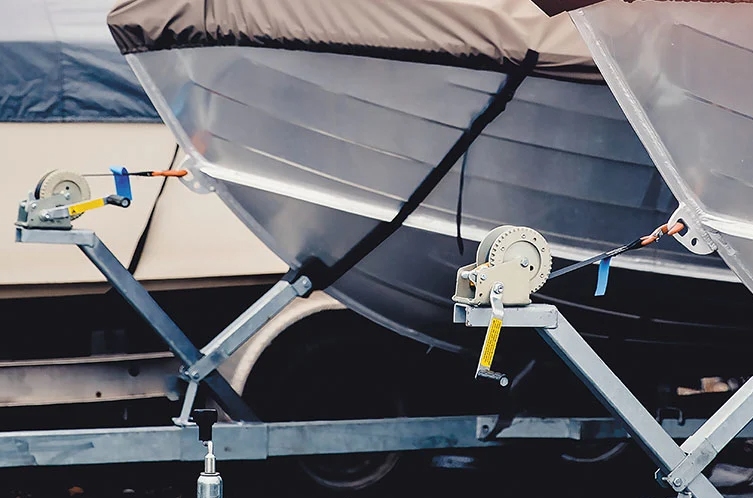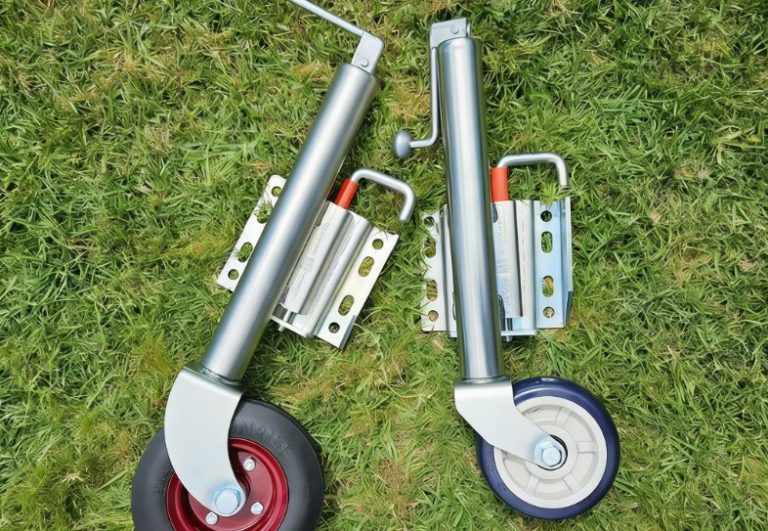Choosing the right wheels for your trailer is quite possibly the most crucial decision you’ll ever make as an owner of a trailer. Make the wrong choice, and you’re accepting less than optimal safety features, uneven performance, and costly replacement. In this comprehensive guide, we’re going to walk you through everything you need to consider in selecting the perfect aluminum wheels for your trailer so that you can make an educated choice that best meets your requirements.
Why Aluminum Wheels Are the Better Choice
Unparalleled Corrosion Protection
Unlike rust-vulnerable and corrosive steel wheels, aluminum wheels naturally create a protective oxide coating when left out in the open. This renders them ideal for:
- Salt air-exposed coastal zones.
- Winter driving zones are exposed to de-icing chemicals.
- Boat trailers that are frequently submerged in water.
- High-humidity zones.
Improved Heat Dissipation
Aluminum’s high thermal conductivity for improved heat dissipation, which:
- Prevents brake fade on long downhills.
- Extends the life of tires by preventing overheating.
- Decreases risk of heat blowouts.
- Delivers improved around-the-corner braking power.
Weight-Saving Advantages of Large Degree
Aluminum wheels tend to be 25-35% lighter than comparable steel wheels, which translates to:
- Improved gas mileage for your tow vehicle.
- Reduced stress on your trailer suspension system.
- Easier handling when installing and maintaining.
- Increased payload capacity within weight limits.
Aesthetic Beauty and Maintenance
Since they are clean, shiny-looking, aluminum rims look great for a few years longer than chipped and rusting painted steel rims. They require essentially no maintenance to look like new.
The 5 Key Specifications You MUST Check Before You Buy
1. Bolt Pattern (PCD – Pitch Circle Diameter)
The bolt pattern is the most critical specification to match. It’s written in the form of several bolts by bolt circle diameter (e.g.,GO Trailer’s 4x114.3-12 inch aluminium wheels).
How to measure:
- For even-number patterns (4, 6, 8 lugs): Measurement center-to-center between two opposite bolts.
- For odd-number patterns (5 lugs): Measurement from the center of one bolt to the center of the bolt directly across.
- Measure with a bolt pattern gauge for accurate measurements.
Why it matters: The incorrect bolt pattern actually keeps the wheel from fitting onto your hub.
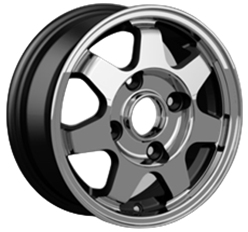
2. Center Bore (Hub Centricity)
Center bore refers to the large hole in the center of the wheel that centers the wheel over the trailer hub.
Why centering is important:
- Offers vibration-free operation.
- Avoids tire uneven wear.
- Accurately distributes weight throughout the hub.
- Reduces lug nut stress.
Measurement tip: Take the hub diameter measurement rather than using old wheel measurements.
3. Offset and Backspacing
Offset indicates the location of the wheel’s center when measured relative to the hub’s mounting surface.
Types of offset:
- Positive offset: Wheel mounts close to the outside (used quite often in trailers).
- Negative offset: Wheel mounts close to the inside.
- Zero offset: Mounting surface exactly at the centerline.
Consequences of an incorrect offset:
- Rubbing of the tire against the fenders or suspension.
- Poor-handling dynamics.
- Futile bearing wear.
- Stability during towing.
4. Load Capacity Rating
Every wheel has a maximum load rating—don’t overdo it.
How to approximate your needs:
- Compute your trailer’s Gross Vehicle Weight Rating (GVWR).
- Divide by the number of wheels.
- Add a 10-15% safety factor.
- Ensure wheel rating is greater than this number.
Example: 10,000 lb GVWR trailer with 4 wheels: 10,000÷4 = 2,500 lbs, per wheel + 15% safety factor = 2,875 lb minimum wheel rating required.
5. Wheel Size and Tire Compatibility
Common trailer wheel sizes are from 13″ to 16″ diameter and 5” to 7” wide.
Key things to keep in mind:
- Equalize the new wheel diameter to your current tire dimensions.
- Offer sufficient clearance for suspension and brakes.
- Good trailer tracking and geometry.
- Check that the total diameter won’t interfere with fender clearance.
Step-by-Step Measurement Instructions
- Tools needed: Tape measure, caliper (optional), bolt pattern gauge (optional).
- Quantity of Lug Nuts: Count bolts on current wheel.
- Bolt Pattern: Use the above procedures.
- Center Bore: Measure hub diameter (not the center hole in the wheel).
- Offset/Backspacing: Measure from the mounting surface to the wheel rim.
- Current Wheel Size: Check the sidewall of your existing tyres.
GO Trailer Aluminium Wheel Details
Our aluminium wheels are made to the highest available quality with:
Precision Engineering:
- CNC machining for precision fit.
- Stringent Testing: Every wheel exceeds industry load carrying capacity and durability requirements.
- Extensive Certification: CE certified and in accordance with international standards.
- Quality Materials: Aerospace-grade aluminium alloys.
Our manufacturing process includes:
- CNC machining and laser cutting for precision.
- Up-to-date forming technology.
- Automated quality control systems.
- In-house manufacturing from raw material to finished product.
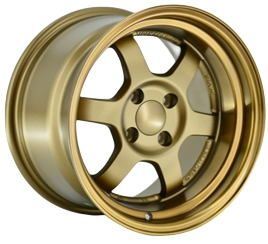
Where to Buy GO Trailer Aluminum Wheels
Buying Directly from GO Trailer
Buying directly from us minimizes middleman markups and, at the same time, offers exposure to professional skills in all of the selection & fitting procedures. By buying directly from a seasoned trailer parts company like Go Trailer, you are eliminating time and money wasted. Our international logistics network enables timely delivery across Australia, Europe and North America. Orders are generally shipped and delivered within 5-10 business days.
Authenticity and Warranty Verification
Each product is supported by CE certification as and when required: We possess a CE certificate for trailer parts. You also get post-sale after-sales service from technical support to replacement services in case of any issues. On-time response provides repair, replacement, or return.
Long Life Maintenance
Regular cleaning
- Wash clean road grime off with soap and water.
- Avoid abrasive chemicals that will strip the finish.
- Apply the aluminum protectant after washing.
Periodic Inspection
- Check for cracks or damage around lug holes every month.
- Check for impact damage markers after severe road conditions.
- Check torque specs at initial 50 miles and again every 500 miles.
Proper Storage
- Dry storage if not used.
- Wheel covers should be removed when storing for extended periods.
- Trailer raising to prevent flat tires.
FAQ
Q: Can I use aluminum wheels on any trailer?
A: If specifications are compatible with the requirements of your trailer. Always inspect bolt pattern, center bore, and load rating before purchasing.
Q: How do I prevent corrosion of the aluminum wheels?
A: While aluminum is naturally corrosion-resistant, regular cleaning and occasional application of aluminum protectant will keep it new-looking and running superbly.
Q: Do you offer custom branding on orders?
A: Yes, we offer custom branding on qualifying order quantities. Please see our sales department for more details.
Q: What is your minimum order quantity?
A: MOQ varies by product. See our sales department for more information based on your needs.
Q: Do you ship internationally?
A: Yes, we ship worldwide with secure packaging to guarantee safe receipt. Most of the orders go out in 5-10 business days.


